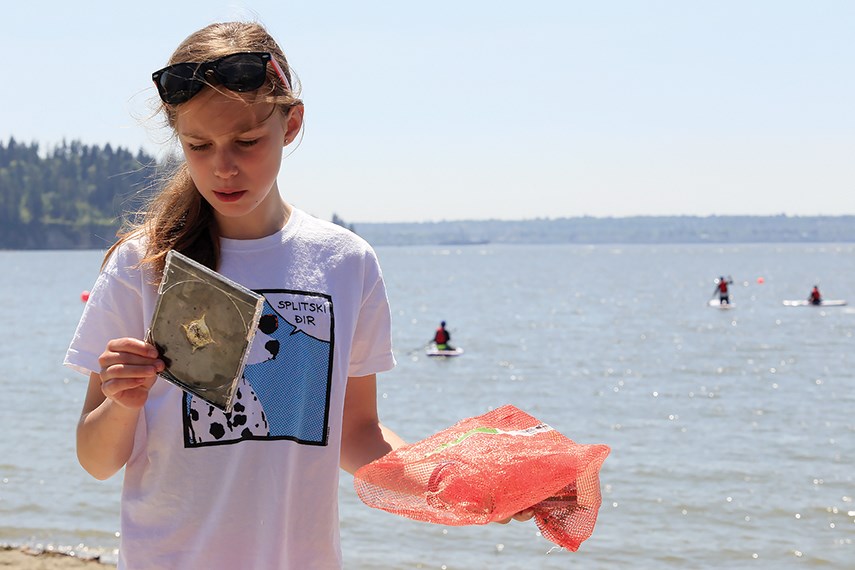Members of a North Shore-based organization dedicated to combating plastics in oceans are applauding the federal government’s recent announcement outlining the first items it’ll be targeting in its upcoming countrywide plastics ban.
In June 2019, citing the global challenges posed by plastic pollution, the Canadian government announced it would enact a series of steps to ban harmful single-use plastics and work with provinces to introduce standards and targets for companies that manufactured or sold plastic products to follow.
Last week, North Vancouver MP and federal Environment Minister Jonathan Wilkinson announced that plastic straws, stir sticks, carry-out bags, cutlery, Styrofoam dishes and takeout containers, as well as six-pack rings for cans and bottles, would be among the first items to go under Canada’s new restrictions on plastics.
“It’s a really good start,” said Alison Wood, co-founder of Ocean Ambassadors Canada, a local organization that provides education around the threats posed by single-use plastics in addition to undertaking environmental initiatives. “This announcement was delayed obviously by the pandemic, but I think it’s really important for the federal government to announce that they’re going to carry on with this despite the fact that we’re in a pandemic. This is a global emergency.”
The proposed ban still has to go through the government’s regulatory process, but Wilkinson said the goal was to have the new rules in place by the end of 2021.
“Plastics are very useful and we all use them,” said Wilkinson. “We just need to make sure that we’re not throwing them in the landfill or dumping them in the ocean.”
While the initial six plastic items targeted in the ban are an excellent starting point, Wood said she hopes another wave of announcements targeting even more harmful plastics is forthcoming.
“We think that Styrofoam is something that should be completely taken out of production, or at least there’s a solution found that it actually does get recycled and it doesn’t end up in our environment so easily. It’s one of the biggest things we see around here in our oceans – thousands of little bits of Styrofoam,” said Wood.
Ocean Ambassadors Canada, along with other community partners, were among the first organizations in the country to successfully lobby some communities to ditch harmful single-use items such as straws and plastic bags.
The organization helped implement a plastic straw ban in Deep Cove in 2018, a plastic bag ban in Horseshoe Bay in 2019, as well as a plastic bag ban in Edgemont Village earlier this year.
While these were voluntary initiatives that required a buy-in from local merchants to successfully pull off, Wood is hoping a federal plastics ban will make it easier for businesses and local governments to follow suit.
Like many organizations during the early days of the pandemic, many of Ocean Ambassador Canada’s spring camps had to be cancelled this year. The organization was able to continue with limited outdoor educational camps during the summer.
Wood said the organization is staying in close contact with several North Shore communities and hopes to be able to roll out more plastic initiatives and educational programs next year.



